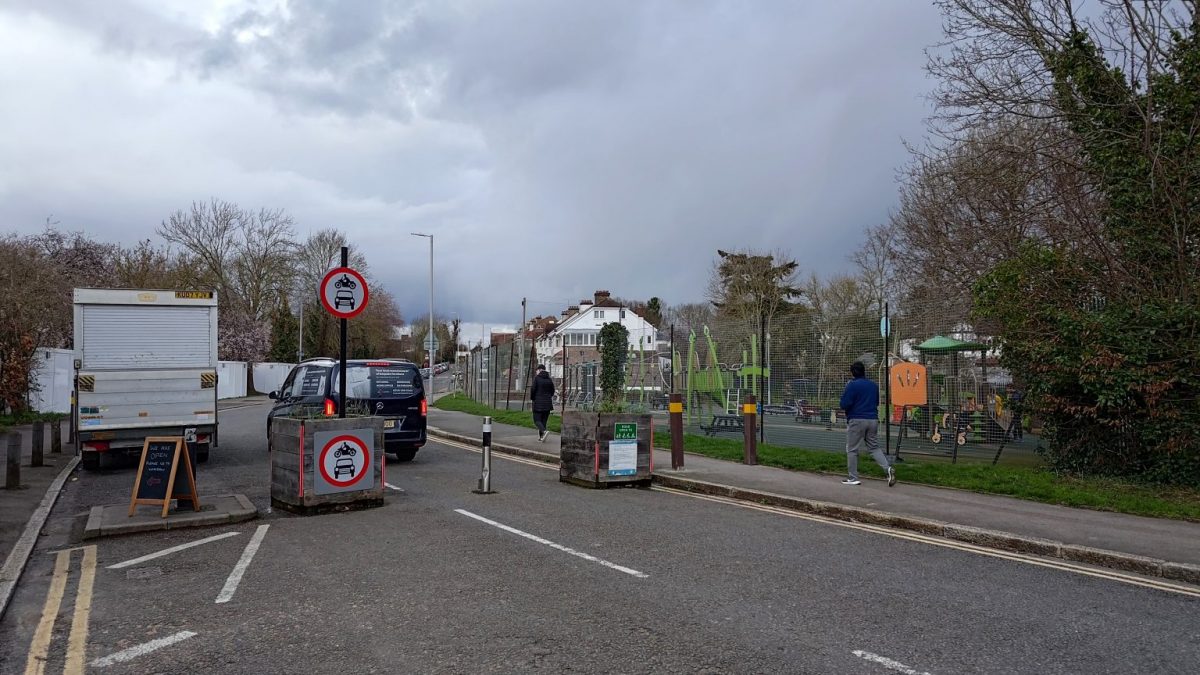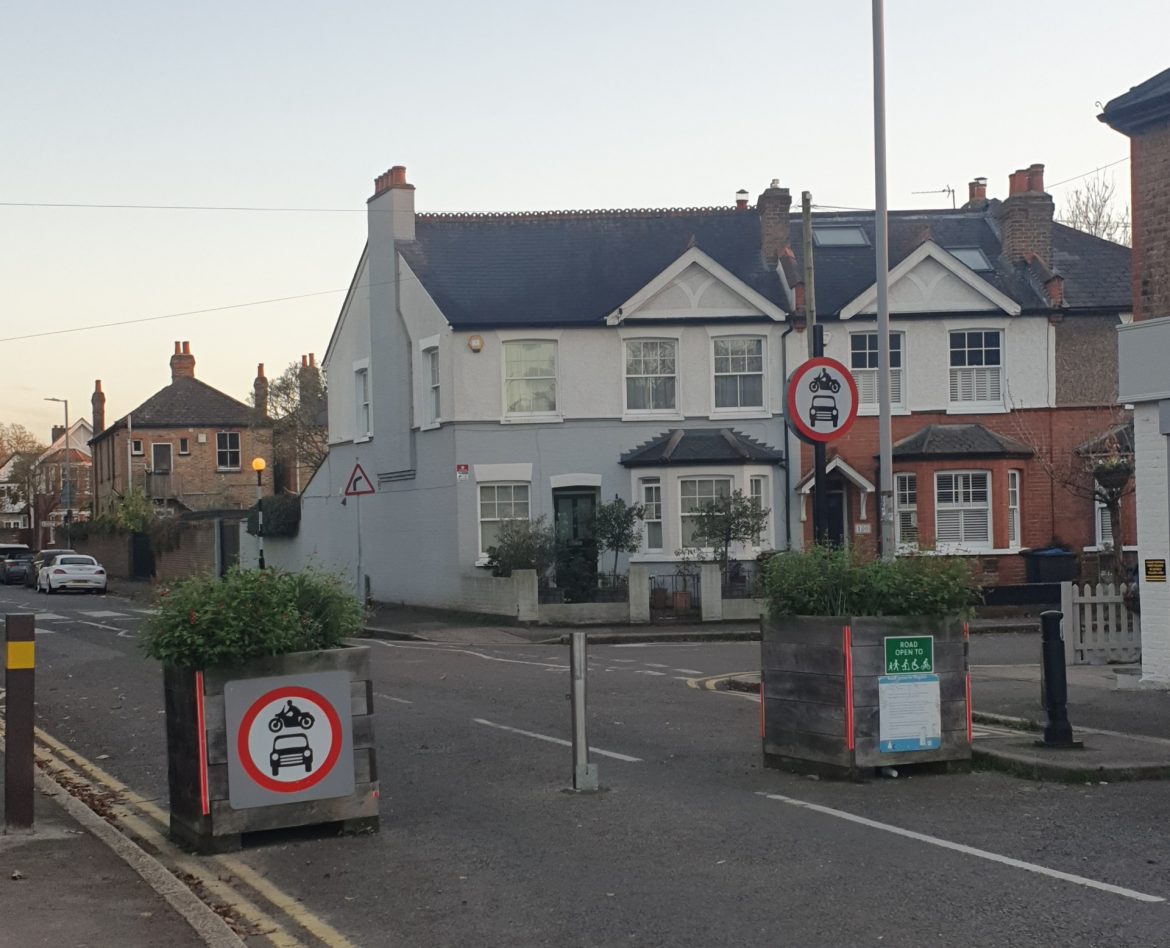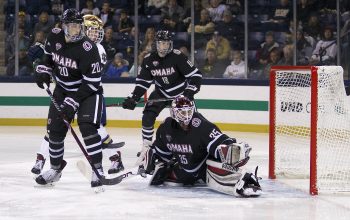Frustrations were voiced that the filter system in King Charles Road does not reduce overall traffic, instead only pushing it into surrounding residential streets.
Residents have expressed anger with Kingston Council after a decision to retain a controversial traffic filter on King Charles Road, Surbiton.
The modal filter, originally permanently implemented in 2021, is designed to reduce traffic volumes on the road as part of the council’s wider Low Traffic Neighbourhood project.
Councillors voted to retain the filter by a majority of 11 to 2, after two opposing petitions from residents led to a report being commissioned into the effectiveness of the barrier.
Graham Hare, representing residents campaigning against the filter, said: “The King Charles Road barrier was a poorly conceived and unnecessary measure. The report clearly states that many residential roads in Berrylands are now experiencing much higher traffic volumes as a result of displacement. This is the opposite of the Healthy Streets policy.”
A petition calling for the council to scrap the filter was signed by 2036 residents, who criticised the initiative for not considering knock on effects and claimed up to 500 drivers a day were now diverting through residential streets.
The affected roads were listed as Raeburn Avenue, Hollyfield Road, Alexandra Road and Pine Walk.
Traffic volumes south of the barrier on King Charles Road have decreased by 78%, as a result of the filter, according to the report.
However, the data also showed an increase of between 4% and 40% on the surrounding roads.

Peter Kent has lived in the Berrylands area for over 30 years. He said: “The barrier increases traffic for the vastly bigger area to the north and east of the 400 metre stretch of road where traffic has been reduced.
“The barrier does not reduce car usage; drivers simply take alternative routes.”
The report said that the increase in volumes were within reasonable tolerance levels for local residential roads.
It also stated that all but one of the roads were still considered to have low traffic volumes of less than 500 cars per hour.
One of the main complaints from residents was that since the filter had been implemented, residential roads were increasingly being used as cut-throughs to avoid traffic.
The report said that for four out of five streets examined, cut through trips amounted to less than a quarter of total traffic volume.
However, local resident Chris Thompson said he felt the barrier had made surrounding streets more dangerous, adding: “As a cyclist I no longer deem it safe to ride through our crowded streets full of angry, exasperated, warring, frustrated drivers.”
Some residents were supportive of the filter retention and suggested that it had provided important benefits.
An alternative petition, requesting that the council keep the filter in place, was signed by 743 residents.
Elizabeth McGill said the filter had improved the local environment for vulnerable residents, adding: “There are fewer cars in a residential area, there are more pedestrians, cyclists and children are safer and thriving in an environment that supports them.”
Chair of the Friends for Fishponds Park, Robert Eyre-Brook, added that there was enormous potential for the traffic-free area that had been created, saying: “I can see it becoming a real community hub for families, situated as it is between the playground, the future school and the two parks.”
A new school is planned to open nearby in September 2025.

Whilst the filter was ultimately kept in place, there was similar disagreement amongst councillors as to its overall effectiveness.
Councillor James Giles spoke against the retention, suggesting the petition against the filter was the largest submitted to the council in a number of years, and pointing to the increase in traffic in surrounding roads.
“It is an issue which has strength of feeling on both sides. But to me, when we consider this in the context of the entire neighbourhood, I cannot in all good conscience and faith say this is consistent with our council policies,” he said.
However, Councillor Roger Hayes said that he had lived in the area for over 40 years and that it was noticeably quieter now, adding that the filter was “probably one of the most successful of those that we [The Council] have introduced in the borough”.
Chair of the Place Committee, Councillor Emily Davey, thanked residents for their emails and contributions to the debate.
Politics Editor of the Kingston Courier. Please get in touch if you have any local stories or political issues you wish to share that might be of interest!






